How Long Do Autoflowering Strains Take from Seed to Harvest?
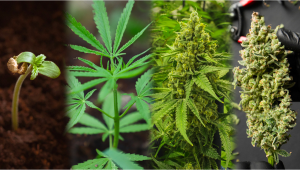
- 1. The life cycle of autos
- 1. a. Week 1
- 1. b. Week 2
- 1. c. Week 3
- 1. d. Week 4
- 1. e. Week 5
- 1. f. Week 6
- 1. g. Week 7
- 1. h. Week 8
- 1. i. Week 9
- 1. j. Week 10
- 2. How to tell when your autoflowering cannabis crop is ready to be harvested
- 3. The advantages of growing autos
- 4. Autoflowering strains faq
- 5. In conclusion
Autoflowers changed the way that Cannabis could be grown indoors or outdoors, without being dependent on specific light cycles. From seed until the point of harvest, autos will begin to flower despite the various seasons during the year, making these low maintenance and highly resistant plants a grower’s best friend. So, if you're wondering how long does it take for weed plants to grow ? In this article we explain what to consider when growing autos, the benefits associated, the life cycle broken down week by week including our grow tips.
1. The Life Cycle Of Autos
The following guide is based on an autoflowering cultivar that takes 10 weeks from seed until harvest.
Week 1
During the earliest stages of growth, the seedling will only grow as tall as one inch, producing its first set of leaves. By this time, the tap root of the seedling will grow downwards anchoring itself to the base of the pot. If grown in soil, seedlings can be fed plain water or a mild nutrient solution root booster.
• Grow Tip: The first week is a very delicate time and seedlings should be given extra care and attention, especially if planting directly outside in a hot or cold climate.
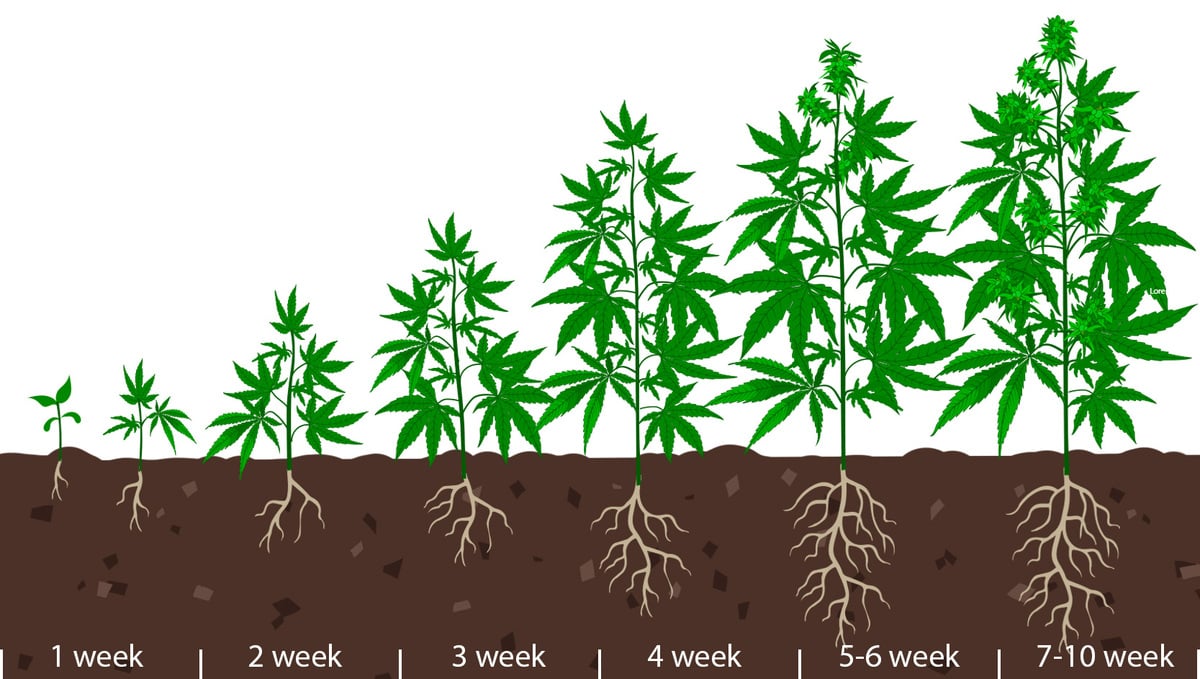
Week 2
After 7 days the seedlings will begin to grow taller increasing the size of the fan leaves. During this time the plants are in a vegetative state so they will rely on Nitrogen, Phosphorus, and Potassium as well as trace elements to aid in foliar development, stem production and root production.
• Grow Tip: Organic soil will have all of the primary nutrients and trace elements a Cannabis plant requires during the early stages. Bottled nutrients will also work well as long as you follow the recommended guide.
Week 3
By week 3, the plants will have grown tall quickly, with shoots between the internodes, that will develop into hardwood branches. The fan leaves will be large-sized and depending on which autoflowering cultivar you are growing, the growth structure will be bushy or one main central cola.
• Grow Tip: Now is a good time to perform plant training techniques such as tying down, super-cropping, pruning, and in some cases topping and fimming.
Week 4
Once autoflowering plants are 28 days old, they will have grown to a height between 30-45cm in some cases. The growth structure will be well established with internodal spacing stretching out more as the weeks go by. It is during this time when the plants will go through a hormonal change inducing flowering.
It is best now to reduce the amount of Nitrogen you are giving the plants, as their primary focus will be Phosphorus and Potassium. It is the P and K that encourage the plants to grow pre-flowers and strong stems and side branches in preparation for a heavy harvest. Sativa dominant hybrids should be tied down here if the height is an issue.
• Grow Tip: It is a great idea to add support such as bamboo stakes or a net trellis around the plants. Over the next 5-6 weeks they will focus on producing as much weight as possible.
Week 5
Now you are halfway through your growth cycle and will notice the growth structure and appearance of the plant will be growing tall, bushy, and with high resistance to strong winds.
Pre-flowers will be growing in abundance with resin production forming around the pistils, calyxes, and surrounding leaves. Depending on the cultivar you are growing, your plants will be as tall as 60-80cm, with new, fresh foliage being grown at every internodal site.
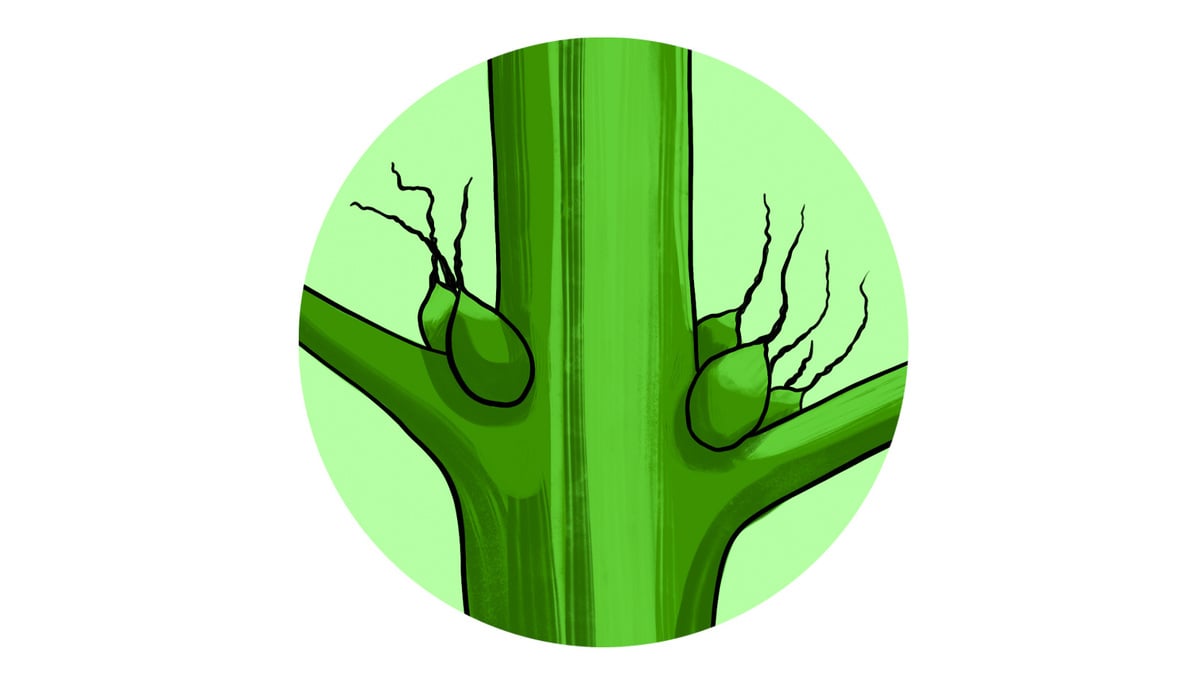
• Grow Tip: On the basis, you have trained your plants or used a screen, plant height can be easily controlled.
Week 6
By day 42, the plants will begin to fill out and take on a stacked and chunky appearance. The internodal spacing will become filled with flower sites, and the height of the plants will begin to slow down, as all energy is spent on flower production. The resin will begin to form very quickly covering the buds, with the aroma and terpenes making themselves well known. Plant height will range between 70-125cm.
• Grow Tip: Now the plants will depend on frequent amounts of nutrient solution, and using supplementary boosters and enzymes is an option to increase flower and resin production further.
Week 7
Once your autoflowering plants approach day 49, the structure will be very dense and compact, with buds swelling at every internode. The aroma will also become much more enhanced and when you squeeze a bud, your fingers will be stuck together with a layer of sticky resin. The total height of your plants now is 70-150cm depending on cultivar and climate.
• Grow Tip: Some cultivars are more nutrient hungry than others, so do not overfeed your plants just because you are close to the harvest. Check how the plants look and respond between waterings.
Week 8
The buds will begin to fatten up and show signs of swelling up, with a prolific resin production. During weeks 8 is when the plants will be fed their last nutrient solution, as they will now be responsible for using up their reserve nutrients that have been stored over the duration of the plant’s life cycle. The plant's appearance will look chunky, heavy, and full of weight with tightly packed sugar leaves surrounding the buds.
• Grow Tip: The white hairs on the plant will begin to fade to brown showing she is close to maturity. Do not judge the harvest date on the color of hairs, and use methods such as trichome development, bud density, and terpenes as a guide.
Week 9
As the plants get closer to the harvest date of 10 weeks, it is wise to encourage the plants to use up their nutrient reserve. The final two weeks are known as the flushing period, meaning that the plants will use up their reserve amounts of N-P-K and trace elements. It is normal to see deficiencies begin to form as this is a good sign the excess nutrients are being used up. The calyx of the bud will now bulge and swell with a round and pointy appearance. Trichome development will be at the peak maximum and now is a good time to start checking the maturity of your trichomes.
• Grow Tip: There is no need to add more water than normal, or water more frequently, simply stick to the routine you have been using.
Week 10
Once you have hit the 10-week mark, your autoflowering plants will be fully mature and ready to harvest. The buds will be as thick as golf balls and should have filled every branch and internodal spacing. The terpenes will be the most aromatic, they can be, with the buds encrusted with trichomes, including the surrounding leaves. At this point, you are ready to get your trimming scissors out and begin harvesting the plants.
• Grow Tip: By this point, the plants will display lots of different colors from deficiencies to end-of-seasonal colors, such as purples, pinks, and magentas.
2. How to Tell When Your Autoflowering Cannabis Crop is Ready to be Harvested
One thing that novice growers often seem to struggle with is knowing exactly when their autoflowering (and photoperiodic for that matter) weed crop is ready to be harvested. After all, harvest time is up there with the most important parts of the entire growing process, so getting this right is pretty important. Harvest too early, and you're going to be missing out on potency and total potential final yield weight. Harvest too late, and you'll be sacrificing some of the smoothness of your buds. It's a delicate balance. Fortunately, there are telltale signs that can help you decide when it’s time to harvest your cannabis plants, but there is also some pretty dodgy info out there regarding harvest timing. You might hear (or read) about the color of the pistils, the denseness of the buds, or even the richness of the aroma. This is all, well, bullshit.
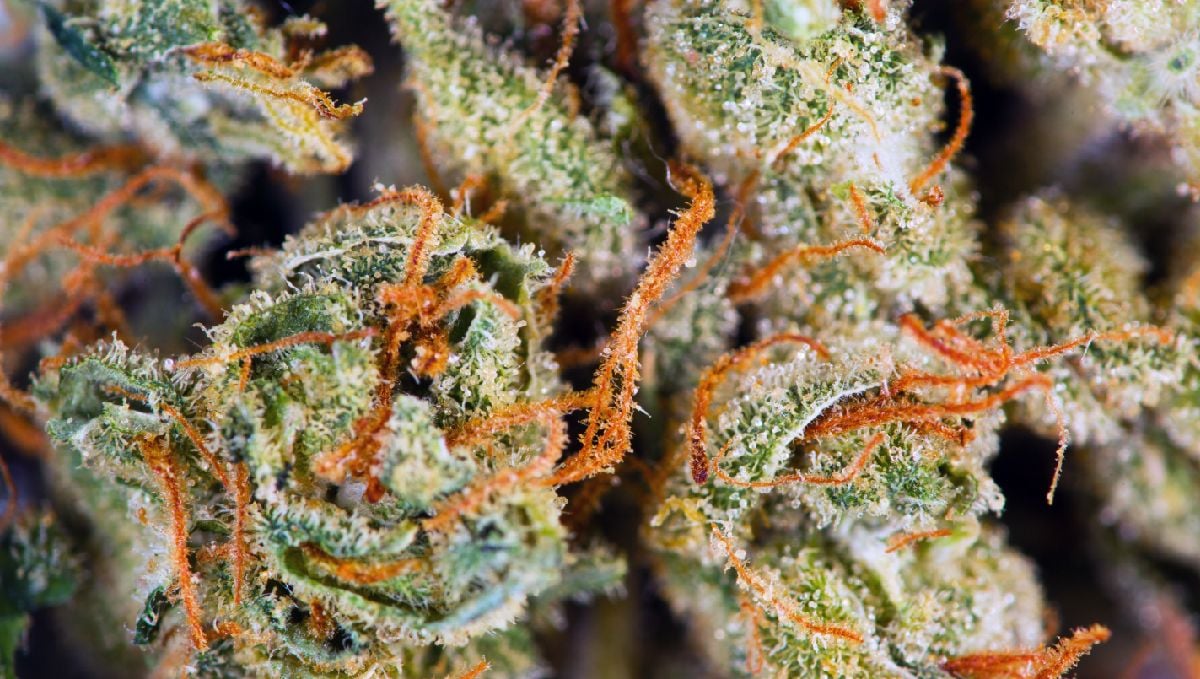
Pistils come in a range of colors, and while they do go through a color shift during the lifecycle, this is anything but a certain way of telling how ready for harvest a plant is. Bud density is determined by a huge range of factors, and so again this is neither here nor there for harvest readiness. And the same goes for the aroma. So, how can you tell exactly how mature a cannabis plant is, and when the perfect harvest timing will be? By the trichomes. Or, to be more precise, the color of the trichomes. As trichomes mature, they go through 3 distinct stages:
- First up, we have clear or translucent trichomes.
- The next stage is cloudy, or milky trichomes.
- And finally, we have amber trichomes.
Most growers agree that for the best outcome, you want to harvest your plants when the ratio is near 70% to 30% cloudy to amber. This ratio ensures that you harvest when the trichomes are mature, but there is still enough of that milky goodness to make your buds as smooth and tasty as possible. It's also important to note that harvest timing will vary depending on the strain you are growing, and the type of harvest outcome you're looking for. Sativa dominant strains usually require longer flowering times, so harvest timing will reflect this. On the flip side, Indica dominant strains tend to be harvest-ready anywhere between 2 to 4 weeks earlier.
In the end, harvest timing is a very personal thing. We all have different tastes and preferences, and the trichome development has a marked effect on the feeling and effects of the bud. When you harvest is up to you, but using trichomes as an indicator should help you ensure that harvest timing is on point. Now, since trichomes are so tiny, the only way to really what's going on is with some sort of magnification device. There are a few opinions available, but in 2022 there's really only one choice that you should be looking at.
While a jeweler's loupe used to be the most commonly used piece of kit to view trichome development - with the rise of handheld, portable, USB-connected microscopes that can be plugged into both smartphones and computers there's really no need to go with anything else. These devices made getting a clear idea of what's going on with the trichomes just so much easier since they come with inbuilt lighting, and enable you to take snapshots. This feature may seem like overkill, but keeping your hand perfectly still while you try and see what's going on is harder than it looks. being able to take a quick photo and study it later takes away a lot of the frustration, especially if you a new to the game.
There are a bunch of options out there, but we really like the digital options - They're easy to use, have variable light, can record in up to 1080p on smartphones, connects over both wifi and USB, and has a 3-hour battery life. Once you harvested, it's time to make a few more key decisions - whether to wet or dry trim, where to dry your plants, what to do with all that delicious trim, and how long you are going to cure the harvest for before you start to indulge. If you need some help making these decisions, head over to this blog post.
3. The Advantages of Growing Autos
If you are new to growing autoflowering Cannabis, then you may not be aware of all of the advantages associated. In comparison to photoperiod strains that require 18/6, and 12/12, autoflowering cultivars are the opposite and will flower with any light cycle making them extremely versatile to all climates.
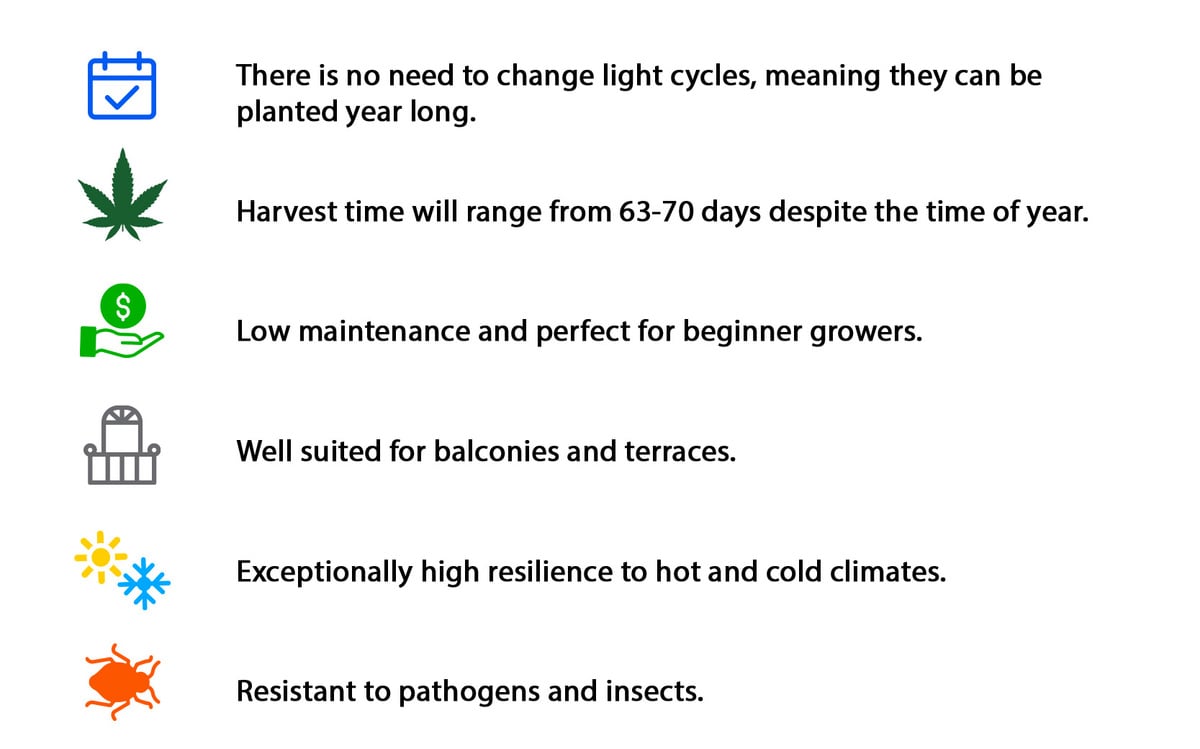
Here at Fast Buds we pride ourselves on producing the fastest flowering autos on the market. Our strains will range between 9-10 weeks, which is extremely quick making them perfect for commercial growers, including novice to expert.
3. Autoflowering Strains FAQ
Do All Autoflowering Strains Take 63 to 70 Days From Seed to Harvest?
No. Although most auto strains do take somewhere in this region, there is no 100% guarantee that every single strain will be finished within 10 weeks. Some strains finish faster, and some strains take a little longer. As a general rule, the Sativa dominant strains will usually take a week or two longer to be ready for harvest than Indica dominant strains.
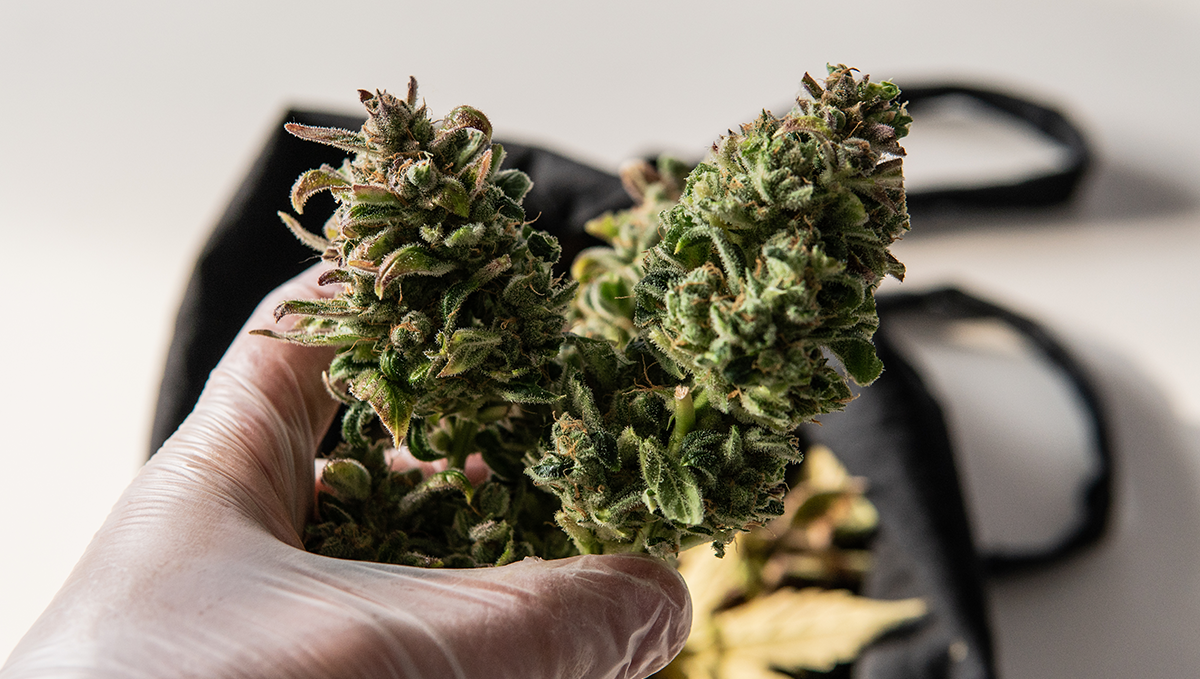
There can be variation even within a strain. Every strain has different phenotypes, thanks to the different genes passed on by the parent plants. That means that with a single 10-seed package you may have some plants that are ready for harvest right on time, with some taking less or more time. Keep a close eye on your buddy, and grab a jeweler’s loupe or a microscope so you can see the condition of the trichomes. This is the only true way to know when a plant is ready for harvest.
Are Autos Less Potent Than Photoperiod Plants?
This is an extremely common myth surrounding auto’s, and while it may have been true in years passed, these days autoflowering strains of weed are just as potent as photoperiod strains. There are autoflowering versions of all the top strains, and you can find autos with high CBD.
Do Autos Yield Less Than Photoperiod Plants?
Again, just like the previous question, these days autos can rival photoperiod plants in almost every single way, including the potential yields. Sure, when Lowryder hit the streets over a decade ago, the yields that were seen were definitely sub-par when compared to photoperiod plants. After years and years of selective breeding and hard work, today we have a plethora of different autos on offer. Some come with ridiculous yield possibilities that can certainly rival even the highest producing photo seed.
Do Autos Offer the Same Spread of Terpenes as Photoperiod Plants?
This really just comes down to the strain, but yes, the science is there to show that autos offer just as large a range of terpenes as photos, and in just as strong concentrations.
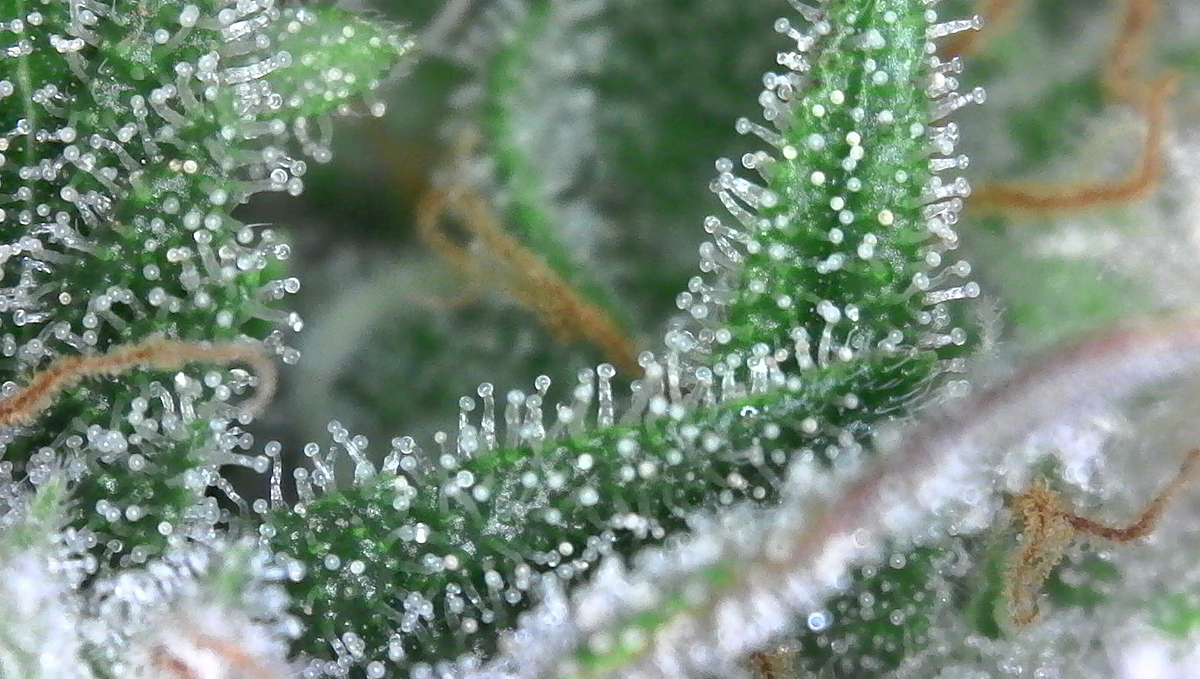
If there are certain terpenes that you are looking for then head over to our sales section, as every single one of our strains comes with a detailed terpene breakdown so you can know exactly what to expect.
Can Autos be Grown Under 24 Hours of Light?
Yes, one of the true advantages of cultivating autoflowering plants is the fact that can be grown under any lighting conditions at any time during their life cycle. Perhaps the question should be...
Should Autos be Grown Under 24 Hours of Light?
Not the easiest question to answer, really. Some expert growers say that it is totally fine to grow under 24 hrs of light, others are of the school of thought that it is overkill and a waste of energy, while others think that no dark period is detrimental to the crop as they have no time rest. The jury is still out, as not enough peer-reviewed studies have been run to really come up with a definitive answer. For the most part though, we recommend a light schedule of 18/6 throughout the entire lifecycle of an autoflowering plant.
4. In Conclusion
Thanks to the toughness and high resistance to powdery mildew, mold, hot and cold climates, autoflowering Cannabis plants are the best way to grow top-shelf flowers from beginner growers to expert commercial farmers.
So, how long to grow weed from seed to harvest? With super fast flowering cultivars such as our Lemon Pie Auto, the harvest is possible every 8 weeks. If you are growing perpetually outdoors all year long, it is possible to harvest top-quality medicine, between 8-10 weeks depending on which cultivar is being grown.








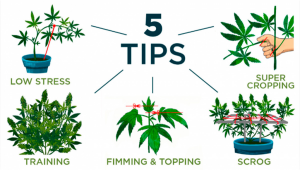
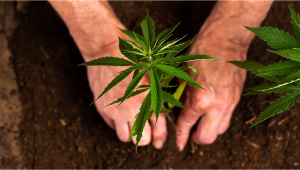
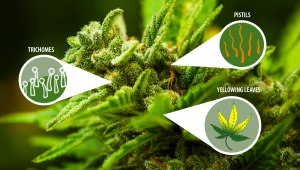

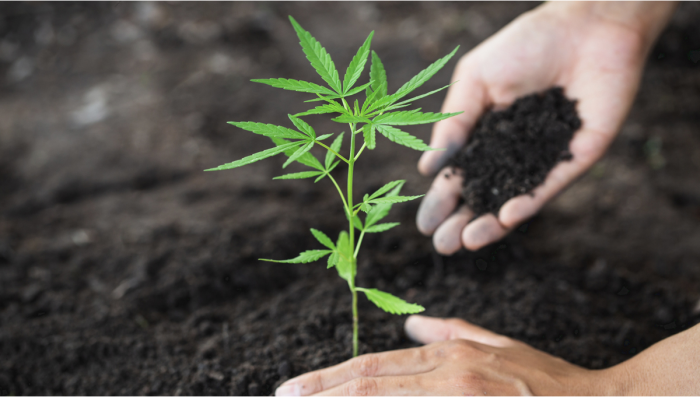
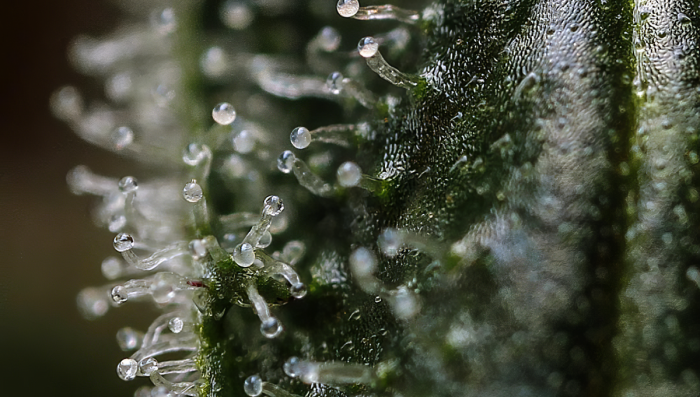
Comments